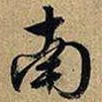
关于by的用法?
therewasalsoabiggapbetweenmen'sandwomen'stimespentonotheritems,byabout15minutesforwas...
there was also a big gap between men's and women's time spent on other items, by about 15 minutes for washing clothes/ironing and 10 minutes for shopping respectively.
例句中表示时间花费为什么需要加by?直接about不行吗.. 展开
例句中表示时间花费为什么需要加by?直接about不行吗.. 展开
7个回答
展开全部
本句中by 应指“数量,程度的差异”。
句意:男性和女性在其他事项上花费的时间也有巨大差异。洗衣服或者熨衣服的时间大约相差15分钟,购物时间大约相差10分钟。
这里about是副词表示“大约”。如果只用about,那么后面这部分就应是做状语补充说明gap,是可以的。
但是用了by也没问题,强调“相差”的意思。比如:His score exceeds hers by 3. 他的分数比她的分数高三分。
句意:男性和女性在其他事项上花费的时间也有巨大差异。洗衣服或者熨衣服的时间大约相差15分钟,购物时间大约相差10分钟。
这里about是副词表示“大约”。如果只用about,那么后面这部分就应是做状语补充说明gap,是可以的。
但是用了by也没问题,强调“相差”的意思。比如:His score exceeds hers by 3. 他的分数比她的分数高三分。
展开全部
by作副词时表示经过,在旁边;作介词时表示在……之前。
1.用于被动语态的句子中,表示动作的执行者,意为“被;由”。He was praised by the teacher. 他受到了老师的表扬。The book was written by Lu Xun. 这本书是鲁迅写的。
2.表示方式、方法、手段等,后常接无冠词的名词或动名词,意为“通过;靠;用”。Don't judge a person by appearances. 勿以貌取人。He made a living by teaching. 他以教书为生。
3.表示时间,意为“到……时为止”或“不迟于……”。He ought to be here by now. 他现在应该在这儿了。By the time he was ten, he had learnt about 1,000 English words. 到十岁时,他已学了约一千个英语单词。
4.表示(增减)程度,尺寸数量等,意为“至……的程度”。The bullet missed me by two inches. 那子弹以两英寸之差未击中我。The rope needs to be longer by two feet. 这绳子需要再长两英尺。
5.表示交通路线或工具,后接名词不用冠词,意为“乘;坐”。go by bus / plane / train 乘汽车(飞机、火车)去travel by land / sea / air 陆上(海上、空中)旅行6.表示位置,意为“在近旁;在……旁边”。There is a pumping station by the river. 河边有个抽水站。
1.用于被动语态的句子中,表示动作的执行者,意为“被;由”。He was praised by the teacher. 他受到了老师的表扬。The book was written by Lu Xun. 这本书是鲁迅写的。
2.表示方式、方法、手段等,后常接无冠词的名词或动名词,意为“通过;靠;用”。Don't judge a person by appearances. 勿以貌取人。He made a living by teaching. 他以教书为生。
3.表示时间,意为“到……时为止”或“不迟于……”。He ought to be here by now. 他现在应该在这儿了。By the time he was ten, he had learnt about 1,000 English words. 到十岁时,他已学了约一千个英语单词。
4.表示(增减)程度,尺寸数量等,意为“至……的程度”。The bullet missed me by two inches. 那子弹以两英寸之差未击中我。The rope needs to be longer by two feet. 这绳子需要再长两英尺。
5.表示交通路线或工具,后接名词不用冠词,意为“乘;坐”。go by bus / plane / train 乘汽车(飞机、火车)去travel by land / sea / air 陆上(海上、空中)旅行6.表示位置,意为“在近旁;在……旁边”。There is a pumping station by the river. 河边有个抽水站。
已赞过
已踩过<
评论
收起
你对这个回答的评价是?
展开全部
by有通过的意思,about在这里有大约的意思。文中的意思是,分别通过……和……,男女在其他事项上花费的时间也有很大不同。
已赞过
已踩过<
评论
收起
你对这个回答的评价是?
展开全部
回答如下:介词by 的用法如下:
1. 在……旁边,靠近:
I sat at the table by the window.
2. (用于被动语态)被(由)……:He is kidnapped by two robbers. The building project will be financed by the government.
3. 到……为止, 不迟于,截止于……,在……之前:I am usually home by seven o'clock. The project had been completed by the end of last month.
4. 相差:The price of wheat has decreased by 15%.
5. (表示方式)通过, 凭借,靠,乘坐:They travelled to Beijing by train.
You can pay by cheque.
I will contact you by letter.
Switch it on by pressing this button.
6. 由于:
I did it by mistake.
本句的by表示相差。
1. 在……旁边,靠近:
I sat at the table by the window.
2. (用于被动语态)被(由)……:He is kidnapped by two robbers. The building project will be financed by the government.
3. 到……为止, 不迟于,截止于……,在……之前:I am usually home by seven o'clock. The project had been completed by the end of last month.
4. 相差:The price of wheat has decreased by 15%.
5. (表示方式)通过, 凭借,靠,乘坐:They travelled to Beijing by train.
You can pay by cheque.
I will contact you by letter.
Switch it on by pressing this button.
6. 由于:
I did it by mistake.
本句的by表示相差。
已赞过
已踩过<
评论
收起
你对这个回答的评价是?
展开全部
用在被动后表示被字,被谁用的。
用在现在完成时或者表示时间的句子里,表示到什么时间为止,如by ten(到十点为止),by two (到两点为止) ,by you loving me (到你爱我为止)。
用在现在完成时或者表示时间的句子里,表示到什么时间为止,如by ten(到十点为止),by two (到两点为止) ,by you loving me (到你爱我为止)。
追答
还用使用什么交通工具,by bus,by car等,主要使用的就这些,其他的还有通过,但是没有前面三个常用
已赞过
已踩过<
评论
收起
你对这个回答的评价是?
更多回答(5)
推荐律师服务:
若未解决您的问题,请您详细描述您的问题,通过百度律临进行免费专业咨询



